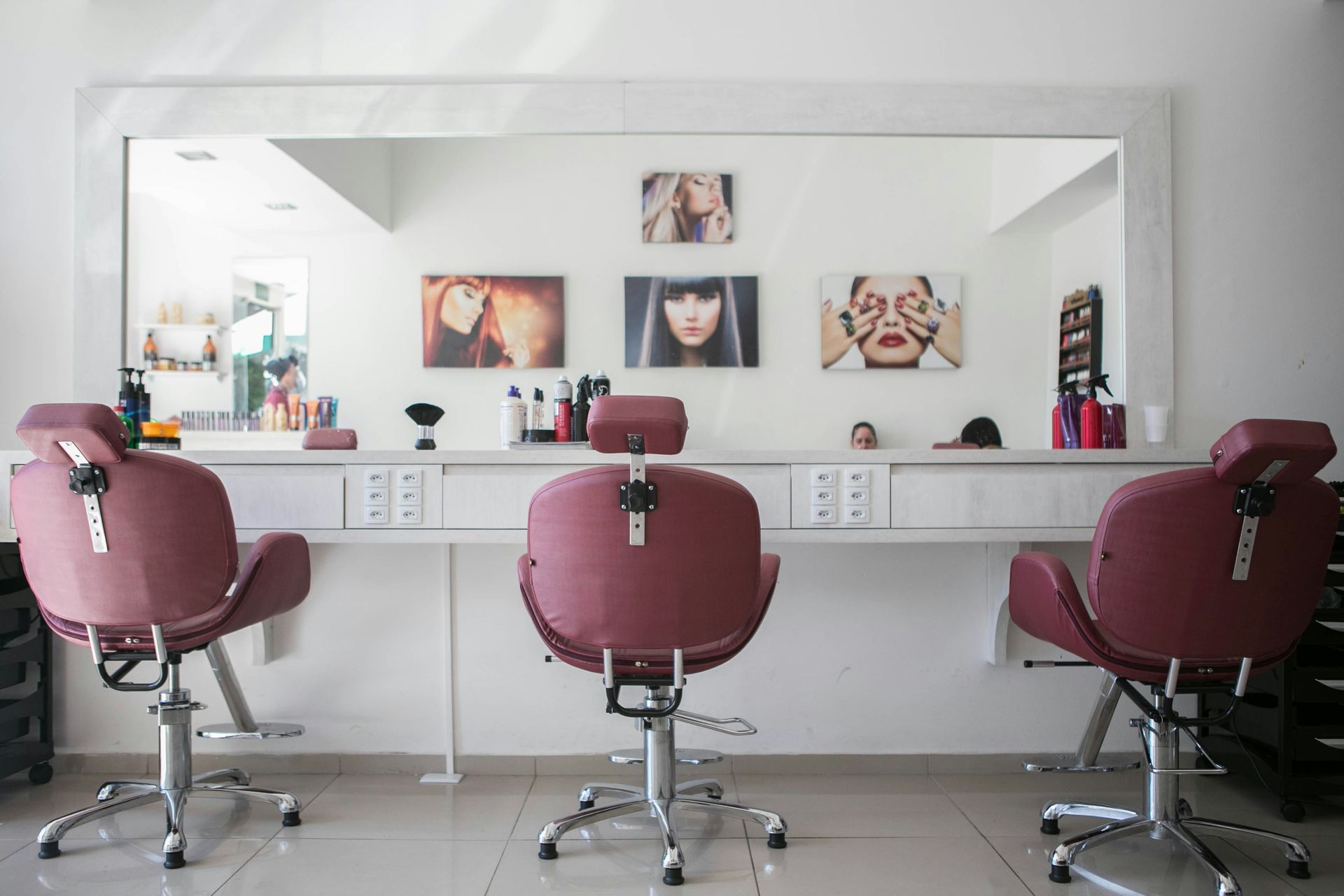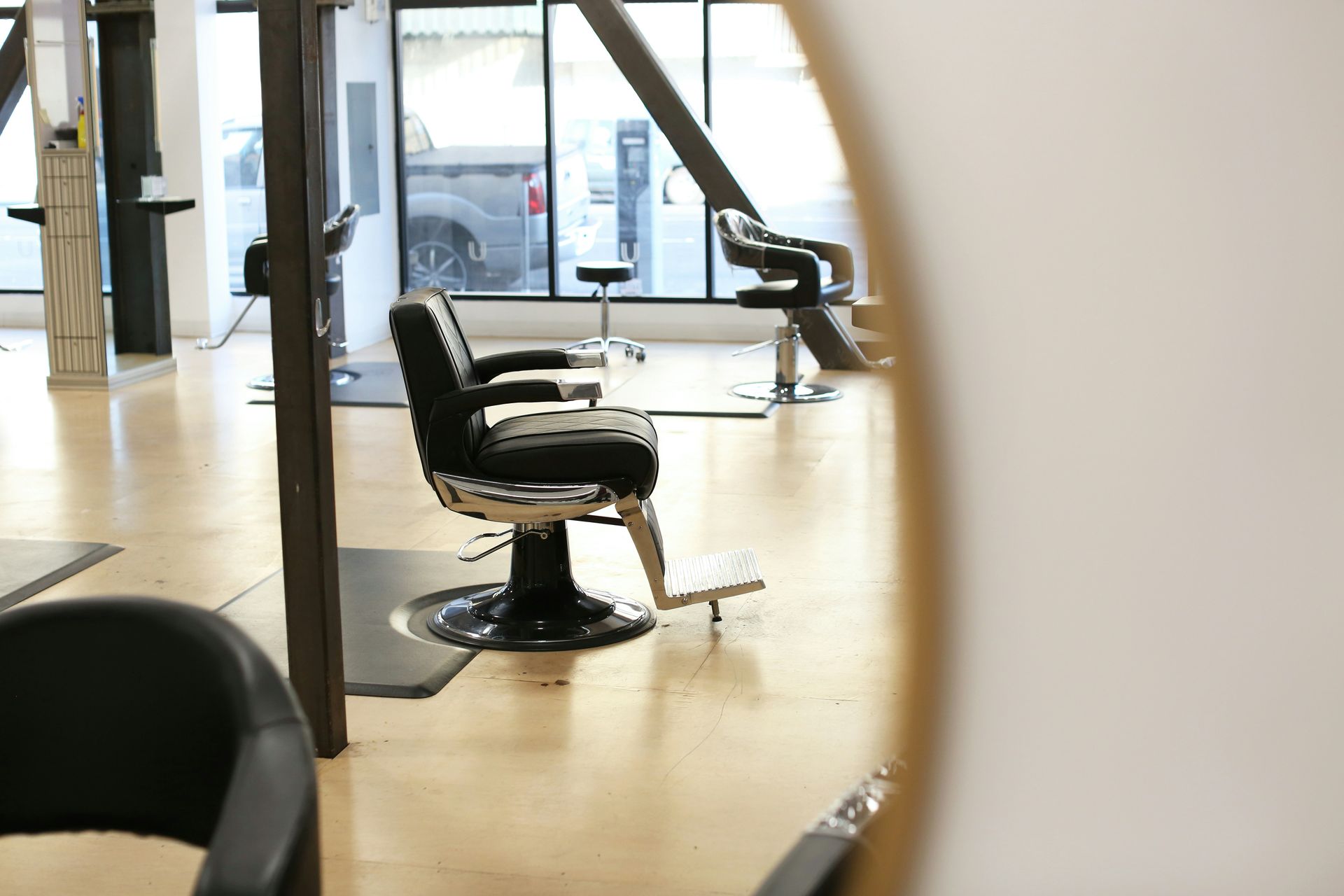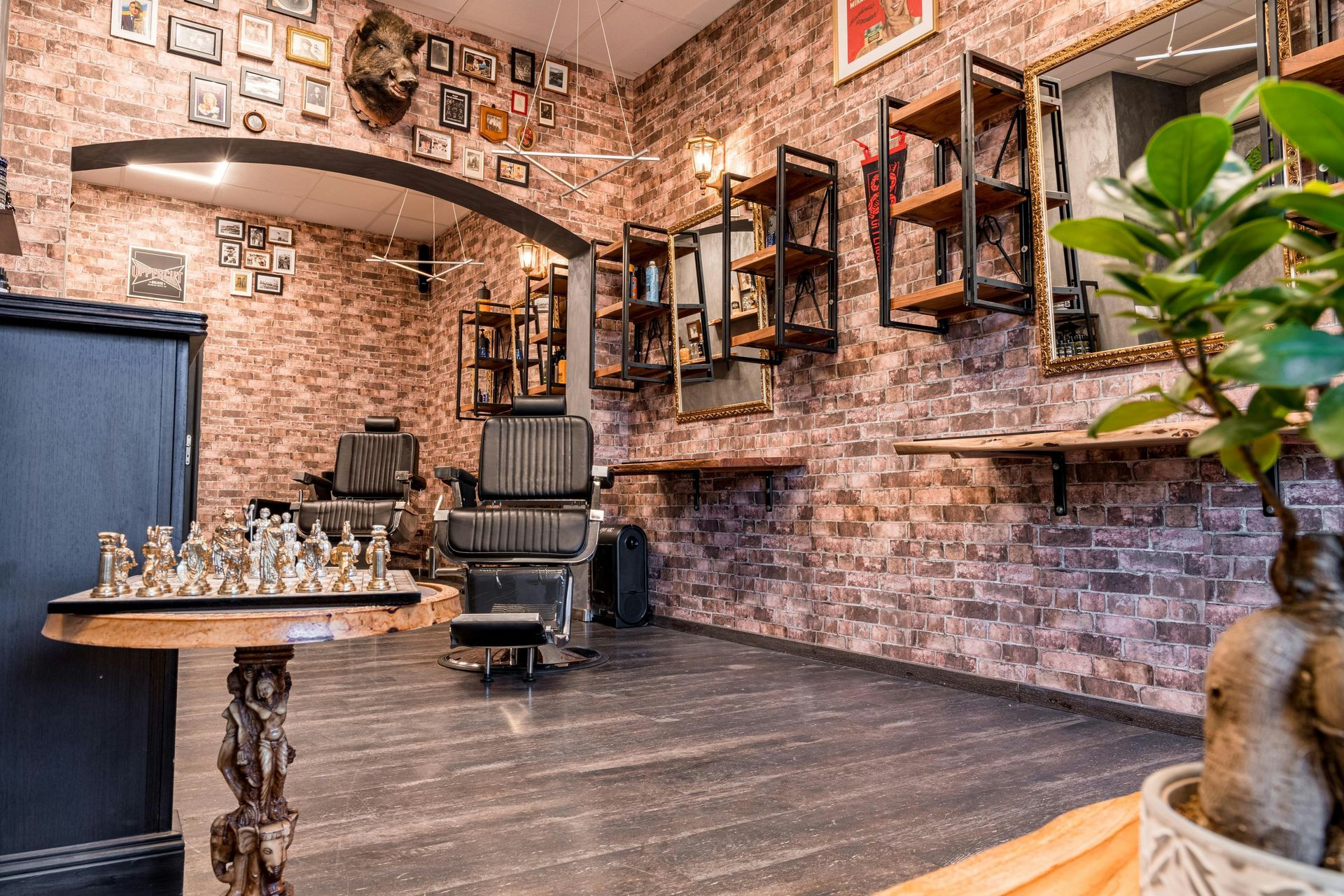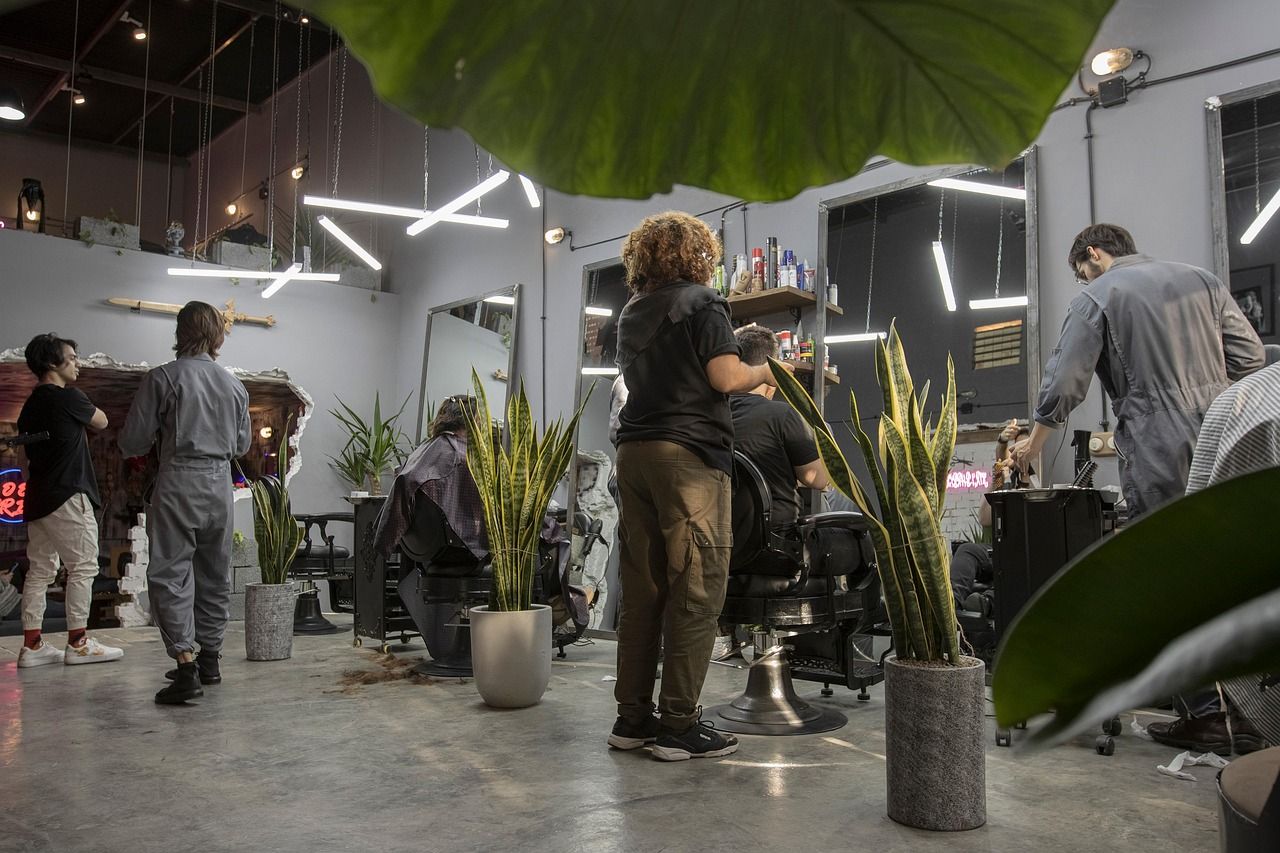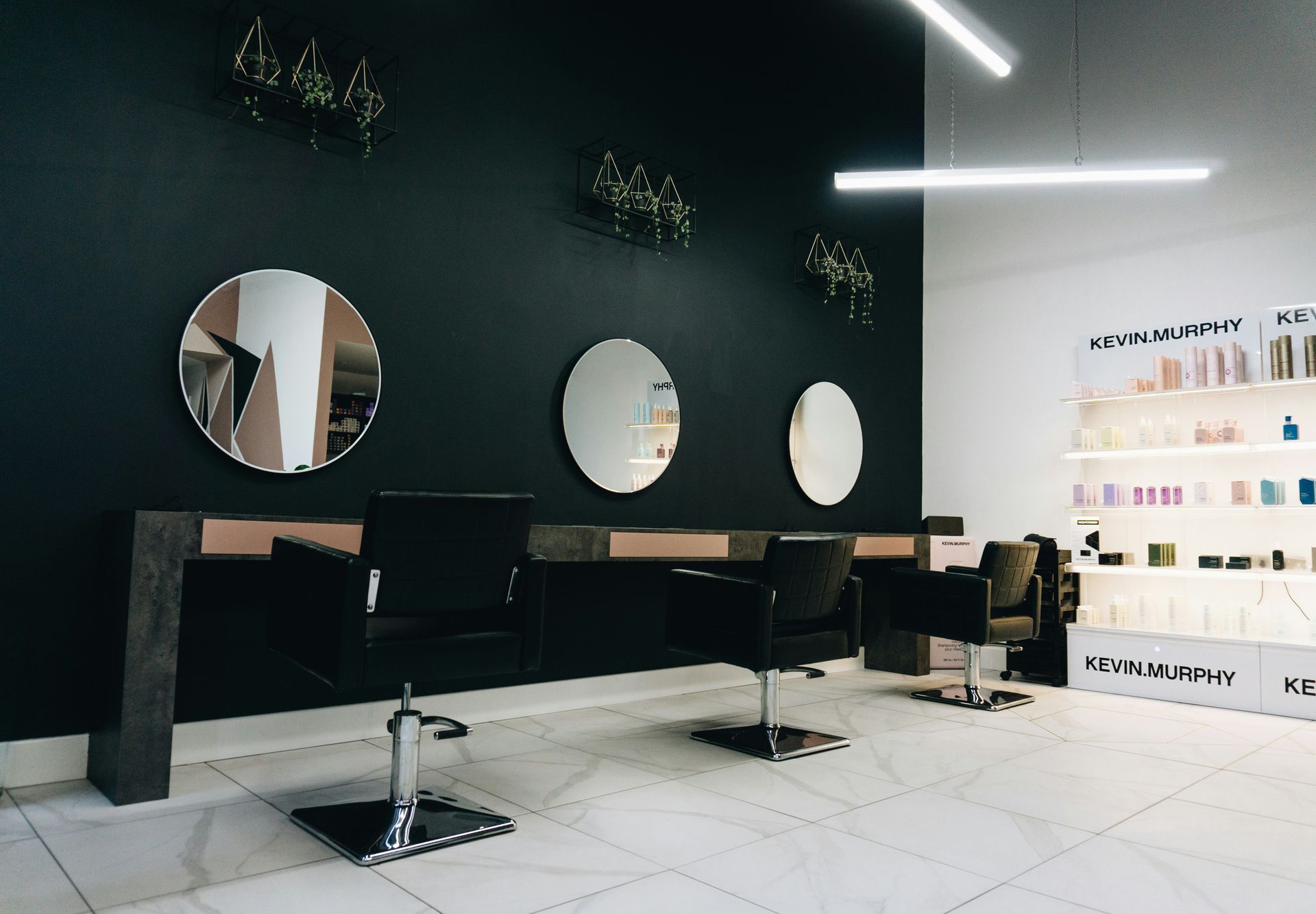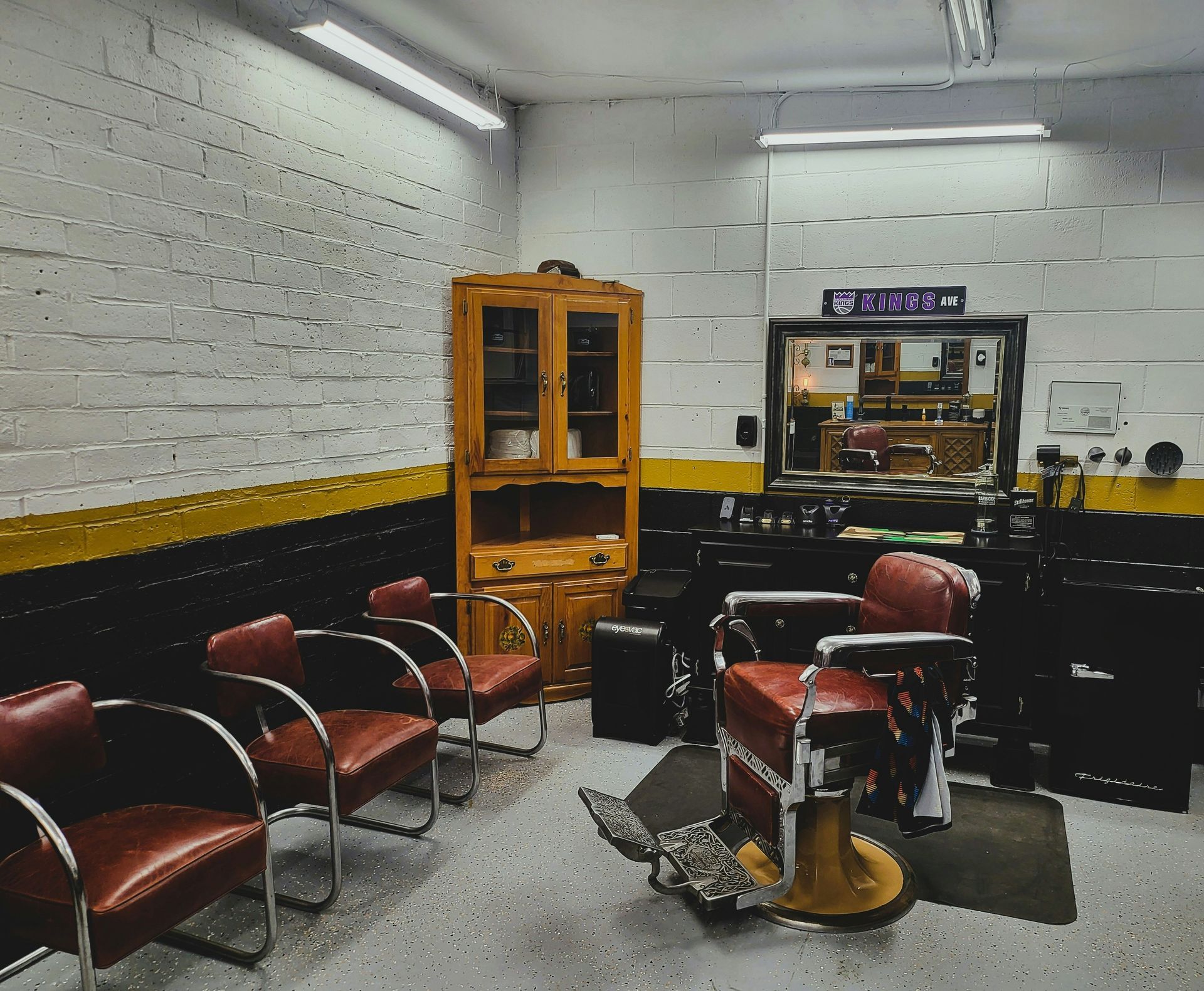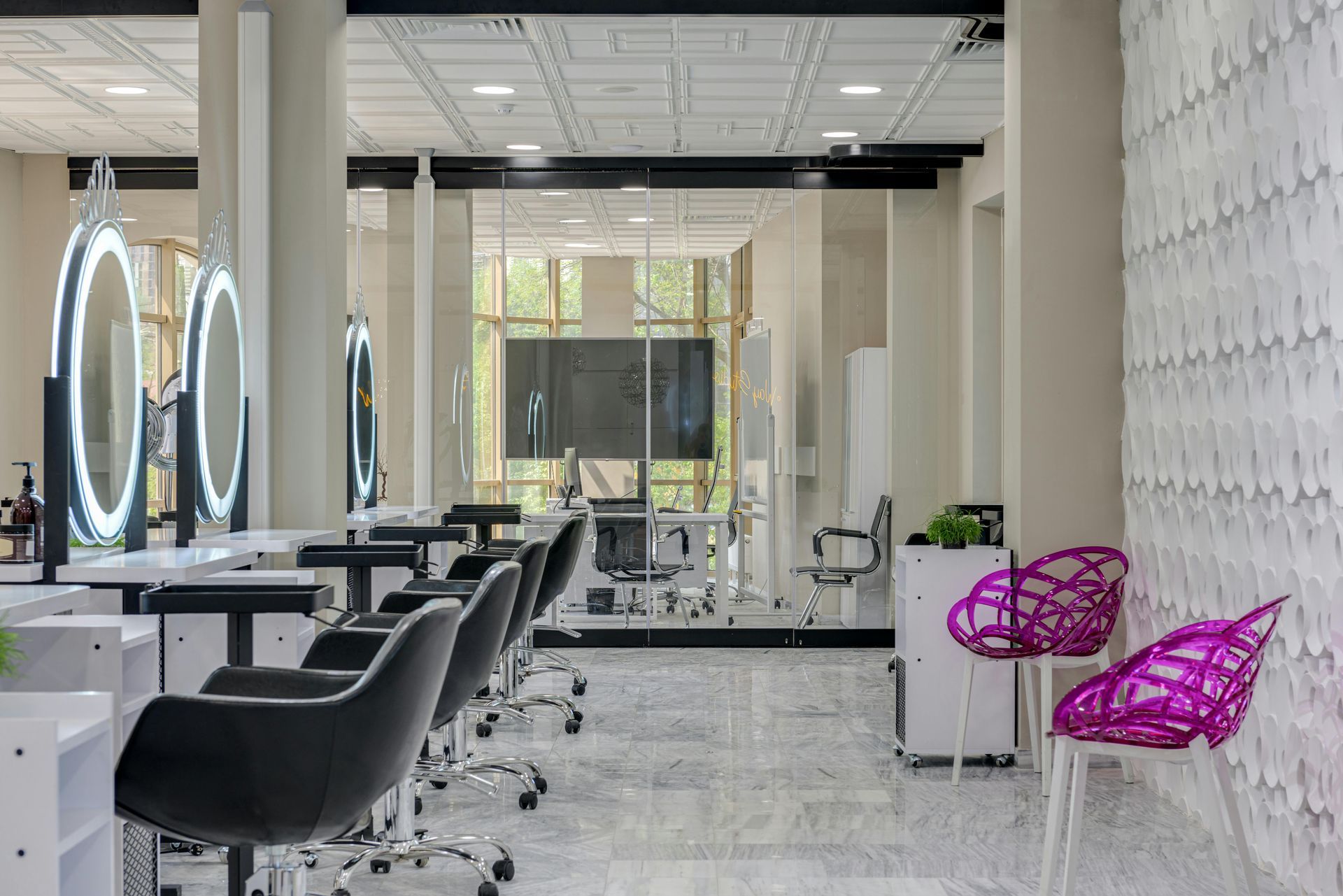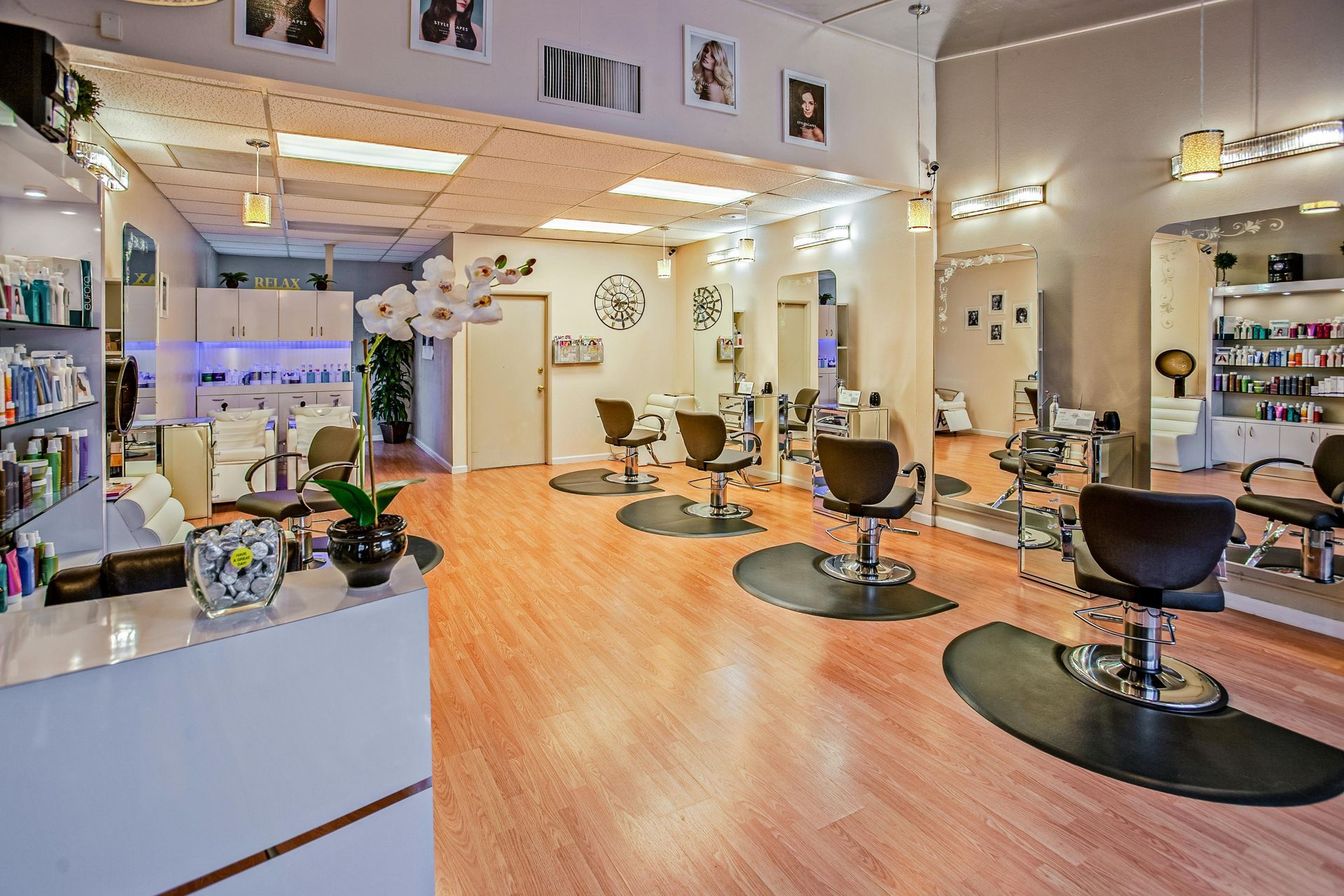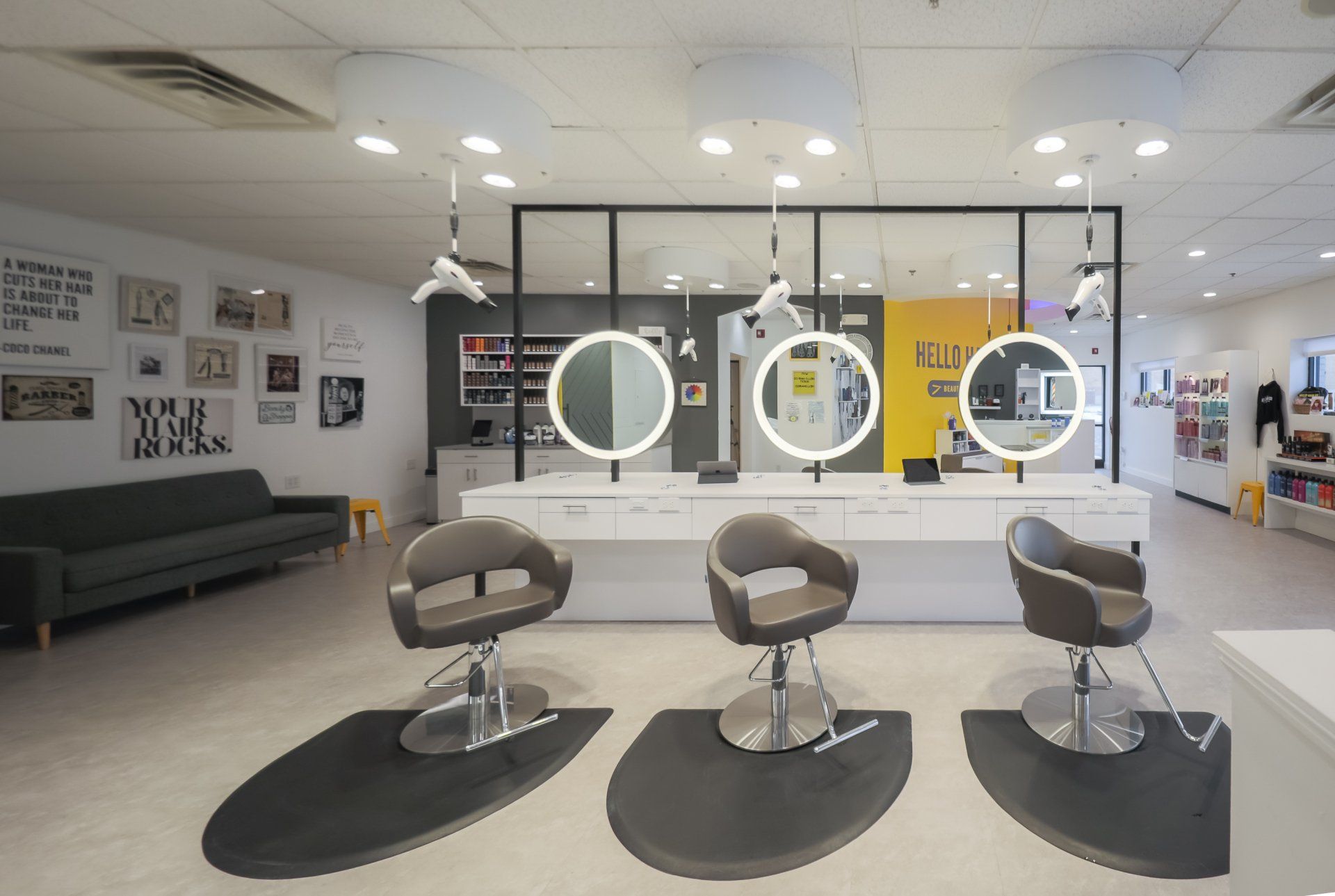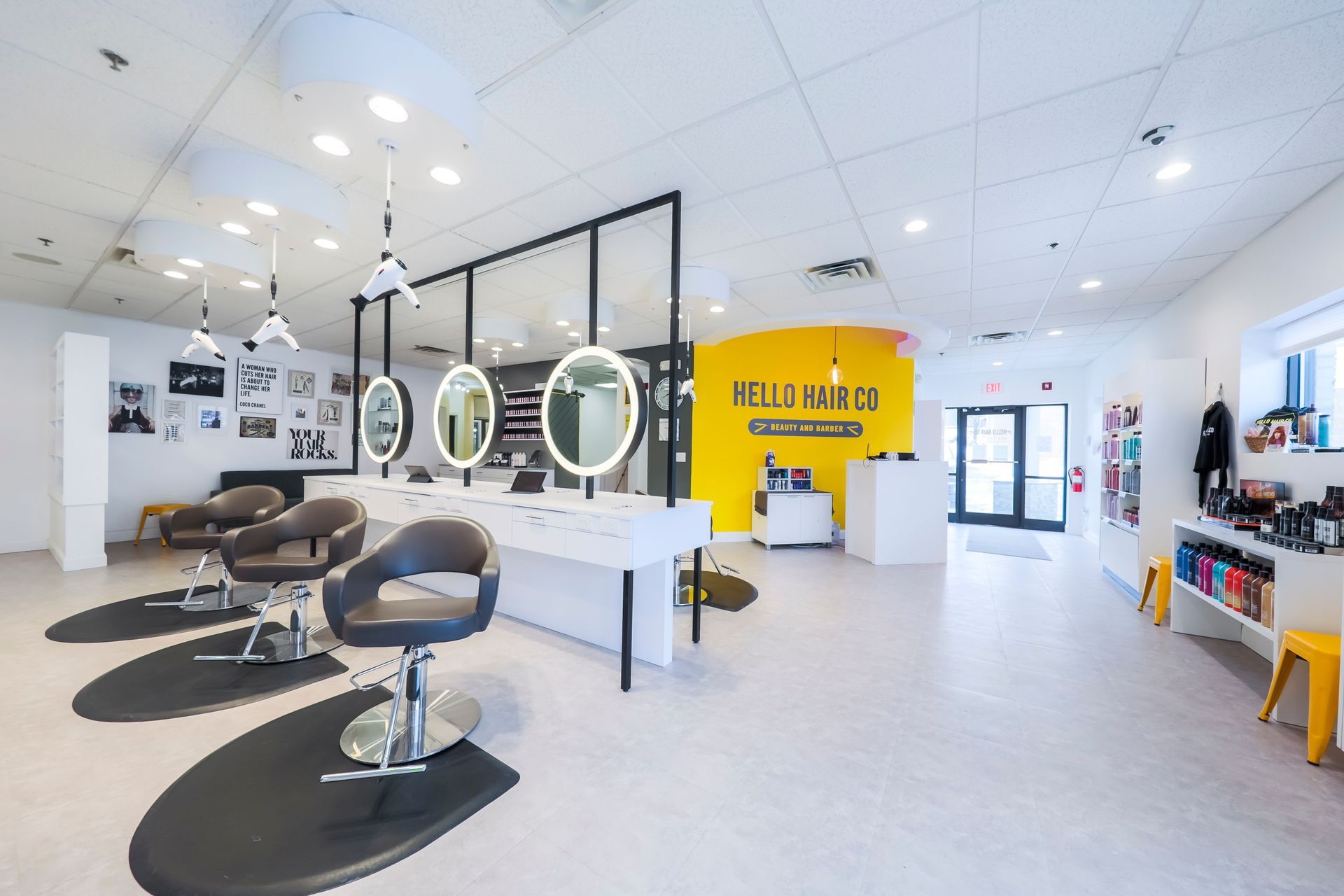“Updated September 26, 2025”
What salon owners and stylists need to understand about booth rental and commission models before choosing a path.
Key Takeaways
- Rental = independence. Freedom and control come with significant financial and business responsibilities.
- Commission = support. Mentorship, structure, and shared systems create stability and growth if leadership is strong.
- Neither model is “better.” Success depends on demand, pricing, and business understanding—not just years in the industry.
Quick Answer
Booth rental offers independence and full responsibility for running a business, while commission-based salons provide structure, mentorship, and career growth opportunities.
Both models can succeed, but stylists often underestimate the hidden costs of rental or the leadership challenges of commission. Choosing the right fit means weighing your demand, financial preparedness, and long-term goals.
The debate: Is Booth Rental Ruining the Salon Industry?
Some argue that rentals are “destroying the industry.” In reality, this belief often comes from fear or frustration.
Commission-based salons that failed to evolve fueled the rise of rental salons. Many relied on outdated playbooks, forced non-compete agreements, and ignored what modern stylists wanted.
Stylists seeking freedom flocked to rental, proving there was demand for alternatives. Neither model is inherently good or bad—both require leadership, structure, and clear expectations.
What Booth Rental vs Commission Really Means
At its core, choosing between booth rental and commission comes down to one question:
Do you want independence or guidance?
- Rental = Independence. Full responsibility for pricing, expenses, and growth.
- Commission = Support. Shared systems, mentorship, and structure.
Both models can work, but many stylists blindly jump into renting without realizing that doing hair and running a business are two separate skill sets. Being talented behind the chair doesn’t guarantee success in business ownership.
Hidden Costs of Booth Rental (What Nobody Tells You)
One of the most misleading marketing pitches in the rental world is: “You keep all your money.”
Here’s the truth: booth rental comes with dozens of expenses stylists don’t always anticipate, including:
- Rent + deposits (often with key fees and contracts)
- Taxes and prep costs
- Build-out expenses (mirrors, lighting, shelving, paint, sanitation supplies, signage)
- Licensing & insurance (liability, property, business interruption)
- Inventory (back bar, color, retail, gloves, towels)
- Software & systems (booking, payment processing, client communication, email marketing)
- Professional services (accountant, lawyer, music licensing, trash removal, utilities)
- Education & community (classes, branding, marketing, continued growth)
These add up quickly. If you’re not pricing correctly, they can outweigh the “freedom” you thought you were buying.
Why Booth Rental Can Be Risky for New Grads
Some rental owners target cosmetology grads immediately after they finish school. This is dangerous.
- New grads lack the technical skill and vision to thrive on their own.
- They don’t yet understand taxes, pricing, or marketing.
- They risk overwhelm, burnout, or failure without mentorship.
- A safer path? If renting is the absolute goal, find a commission salon that provides training and support. Once a stylist builds demand and learns the business side, rental becomes a more sensible option.
How Commission Salons Can Stay Competitive
Commission salons also share responsibility for the rise of booth rental. Many failed to evolve and lost trust by:
- Forcing rigid schedules
- Offering outdated pay structures
- Ignoring the needs of new stylists
Today’s opportunity is to innovate and offer what modern stylists value:
- Clear career paths
- Fair, transparent pay
- Flexible schedules and mentorship
- A culture built on hospitality, not control
Will You Thrive in the Rental Model?
Before jumping into booth rental or a suite, ask yourself:
- Do I have 3–4 months of expenses saved?
- Am I 90–100% booked with loyal clients?
- Do I know my costs per service (what it costs you to deliver each service) and back bar percentages?
- Have I priced out insurance, software, taxes, and retirement?
- Am I ready to handle admin—or pay to outsource it?
- Do I have a plan for continued education and community?
If you can’t confidently answer “yes” to all, reconsider whether booth rental is right for you right now.
The Coming Shift Back to Commission
Industry leaders predict a swing back toward commission—but only for those salons that innovate.
- Poorly run commission salons will close.
- Rental operators offering too many freebies without profit will fail.
- All salons without vision will disappear.
The survivors will be commission salons with culture, mentorship, and growth paths—and rental operators who treat their business seriously.
Why We Love Our Model at Hello Hair
At Hello Hair, we’ve proven that demand—not seniority—drives pricing and raises. Those who put in the work see success.
For example, Jen’s apprentice, Madison, hit the halfway point in her apprenticeship and was already fully servicing clients. She’ll likely see a price increase before she’s even licensed because her demand is strong.
Meanwhile, a former stylist with five years of experience struggled to establish a client base, yet wanted to charge more than others because she claimed, "She had her license longer."
As Todd explained: “Any % of zero is still zero.”
Years don’t guarantee success—demand, results, and effort do.
FAQ: Booth Rental vs Commission Salons
Is booth rental or commission better for stylists?
Neither is automatically better. Booth rental gives independence but requires strong business skills. Commission offers support, but only if leadership provides mentorship and fair pay.
What are the hidden costs of booth rental?
Expenses include rent, insurance, taxes, build-out, inventory, software, and professional services.
Why do some stylists fail in booth rental?
They underestimate costs, overestimate demand, and/or lack business knowledge.
How can commission salons attract and keep stylists?
By evolving and innovating. Commission salons must offer career paths, modern benefits, flexible schedules, and a supportive culture.
Final Thoughts
The rental vs commission debate isn’t about which is “better.” It’s about truly understanding what each model requires.
- Rental offers independence but with significant costs and responsibilities.
- Commission offers support and growth—but only when owners lead well.
Instead of pointing fingers, the industry should be asking: How can we strengthen both models?
At Hello Hair, we believe everyone can flourish when they understand the truth behind their choices.
For more details, listen to the full Hello Hair Pro Podcast episode below!
"Last updated September 26, 2025"
Subscribe To Our Newsletter
Stay up-to-date with what’s going on at HELLO HAIR CO. by subscribing to our monthly newsletter.

